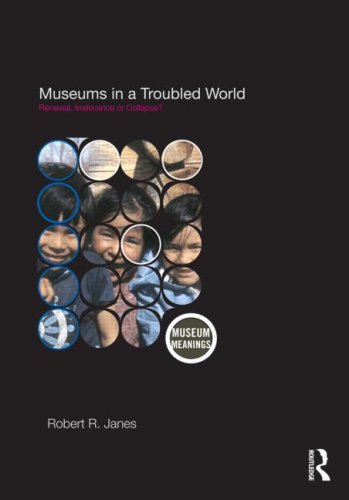

Most ebook files are in PDF format, so you can easily read them using various software such as Foxit Reader or directly on the Google Chrome browser.
Some ebook files are released by publishers in other formats such as .awz, .mobi, .epub, .fb2, etc. You may need to install specific software to read these formats on mobile/PC, such as Calibre.
Please read the tutorial at this link. https://ebooknice.com/page/post?id=faq
We offer FREE conversion to the popular formats you request; however, this may take some time. Therefore, right after payment, please email us, and we will try to provide the service as quickly as possible.
For some exceptional file formats or broken links (if any), please refrain from opening any disputes. Instead, email us first, and we will try to assist within a maximum of 6 hours.
EbookNice Team

Status:
Available0.0
0 reviewsAre Museums Irrelevant?
Museums are rarely acknowledged in the global discussion of climate change, environmental degradation, the inevitability of depleted fossil fuels, and the myriad local issues concerning the well-being of particular communities – suggesting the irrelevance of museums as social institutions. At the same time, there is a growing preoccupation among museums with the marketplace, and museums, unwittingly or not, are embracing the values of relentless consumption that underlie the planetary difficulties of today.
Museums in a Troubled World argues that much more can be expected of museums as publicly supported and knowledge-based institutions. The weight of tradition and a lack of imagination are significant factors in museum inertia and these obstacles are also addressed. Taking an interdisciplinary approach, combining anthropology ethnography, museum studies and management theory, this book goes beyond conventional museum thinking.
Robert R. Janes explores the meaning and role of museums as key intellectual and civic resources in a time of profound social and environmental change. This volume is a constructive examination of what is wrong with contemporary museums, written from an insider’s perspective that is grounded in both hope and pragmatism. The book’s conclusions are optimistic and constructive, and highlight the unique contributions that museums can make as social institutions, embedded in their communities, and owned by no one.